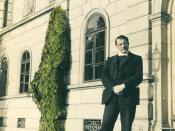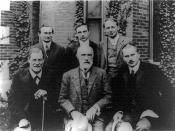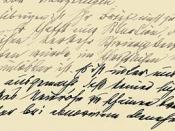"The more a man lays stress on false possessions, and the less sensitivity he has for what is essential, the less satisfying is his life," Carl Gustav Jung was quoted in Memories, Dreams, Reflections. Such a profound thought makes one wonder what exactly are false possessions, and how may essentialness be defined. Through Jung's many years of exploration of the mind, his theory has helped many in finding the answer to these questions but most importantly, it has become one of cornerstones of modern psychology.
Carl Gustav Jung was born in Kessewil, Switzerland on July 26, 1875 and lived until 1961. His family provided him with an intellectual environment right from his early days. He was taught Latin by his father at the age of six, which ignited a lifetime fascination with languages and literature. In fact, his particular interest in ancient literature would later aid him in delineating his theory full of mythological references.
Jung attended a boarding school in Basel as a teenager. There, he was often made fun of by the others. The boy didn't like school and was easily stressed. His incapability to withstand competition led to an unenviable habit of fainting when under pressure. Regardless, he graduated and enrolled the University of Basel. He majored in medicine and eventually took interest in psychiatry, after working under a famed neurologist named Krafft-Ebing (Boeree).
In 1900, Jung graduated with a medical degree and began working at the Burgholtzi, the Zurich mental institution and psychiatric clinic. His research of schizophrenia in 1907 gave him the opportunity to work closely with Sigmund Freud ("Carl Gustav Jung"). At the time, many regarded Jung as the heir to Freud's psychoanalysis (Cowgil). Unfortunately, as time went by, Jung began expressing his disagreements with Freud's perspectives in a more and more...


